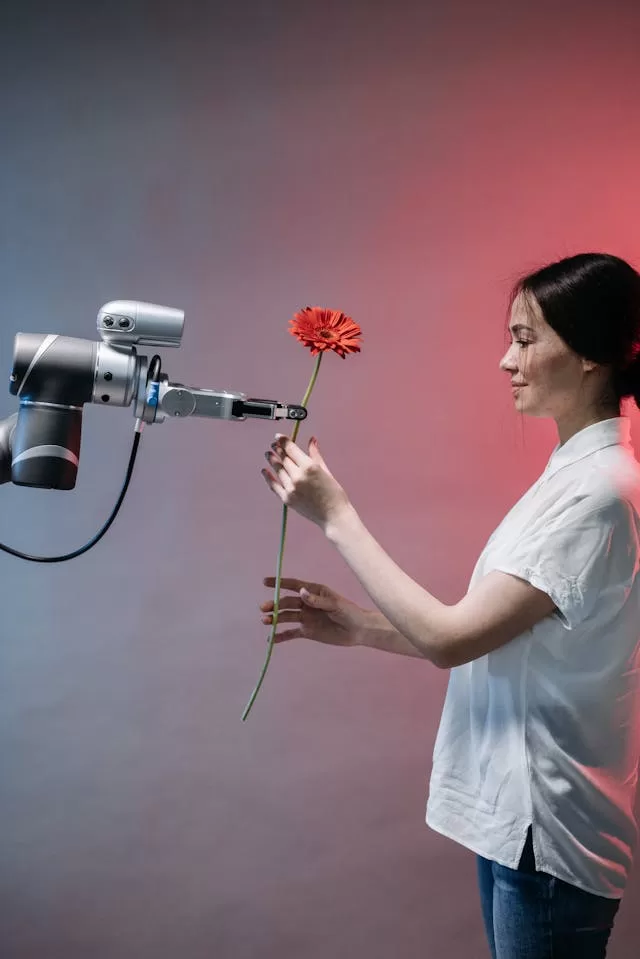Jobs that AI can not replace remain essential in a world increasingly shaped by technology. While artificial intelligence is revolutionizing industries, certain roles require uniquely human traits like creativity, empathy, and moral reasoning.

As AI continues to evolve, understanding the limitations of technology and the irreplaceable value of human skills is more critical than ever. These jobs highlight why AI will always complement, not completely replace, the human workforce.
Table of Contents
1. Teachers and Educators
Jobs that AI can not replace include those in teaching and education, as they require human connection and emotional intelligence. Educators do more than just deliver knowledge; they inspire, mentor, and adapt to the needs of each student.
While AI tools can assist in grading and personalized learning, they lack the ability to understand emotions or foster genuine relationships. Teachers are vital for shaping young minds and addressing unique challenges in learning.
2. Healthcare Professionals
The roles of doctors, nurses, and therapists are jobs that AI can not replace due to their reliance on compassion and personal interaction. Healthcare professionals make critical decisions based on experience, intuition, and patient communication.
AI can assist with diagnosis and treatment planning, but the human touch is irreplaceable in building trust and providing emotional support. The bond between patients and their caregivers is something technology cannot replicate.
3. Artists and Creatives
Jobs that AI can not replace extend to artists, musicians, and writers who rely on imagination and originality. Creative roles demand more than just technical skills; they require emotions, cultural context, and personal expression.
AI may generate art or music, but it cannot capture the depth of human experiences that inspire true creativity. Artistic professions thrive on individuality, making them uniquely human endeavors.
4. Social Workers and Counselors
Social workers and counselors are jobs that AI can not replace because they involve understanding complex human emotions and providing tailored guidance. These roles demand active listening, empathy, and the ability to navigate sensitive situations.
AI can provide data-driven insights, but it cannot replace the emotional depth and intuition needed to connect with individuals. Supporting mental health and well-being requires a human presence.
5. Skilled Trades and Crafts
Skilled trades like electricians, carpenters, and plumbers are jobs that AI can not replace due to the hands-on expertise they require. These roles involve problem-solving in unpredictable environments, where adaptability is key.
AI-driven robots may assist with repetitive tasks, but they lack the dexterity and decision-making abilities of human workers. Skilled trades remain vital for maintaining and building essential infrastructure.
6. Leaders and Strategists
Jobs that AI can not replace include leadership roles such as CEOs, managers, and political leaders. These positions require vision, ethical decision-making, and the ability to inspire and unite people.
AI can analyze data and suggest strategies, but it cannot navigate the complexities of human relationships or lead with empathy. Leadership demands qualities that go beyond algorithms.
7. Performers and Entertainers
Actors, comedians, and live performers are jobs that AI can not replace because they connect with audiences in a deeply personal way. These roles rely on spontaneity, charisma, and the ability to evoke emotions.
AI-generated content may entertain, but it cannot replicate the energy and presence of a live performance. Human entertainers bring authenticity that machines cannot mimic.
8. Researchers and Innovators
Scientific researchers and inventors are jobs that AI can not replace as they push the boundaries of knowledge and technology. Innovation demands curiosity, creative problem-solving, and ethical consideration.
AI can assist with data analysis, but it lacks the ability to ask new questions or challenge existing paradigms. Human ingenuity is essential for progress and discovery.
9. Caregivers and Childcare Providers
Caregiving roles, such as those of nannies and eldercare providers, are jobs that AI can not replace because they involve nurturing and emotional support. These roles require patience, intuition, and a genuine connection with those being cared for.
While AI can automate certain tasks, it cannot replicate the warmth and understanding that caregivers bring to their work. Human touch is irreplaceable in building trust and comfort.
10. Ethical and Religious Leaders
Jobs that AI can not replace include those in ethics and religion, as they guide individuals and communities through moral and spiritual questions. These roles require wisdom, empathy, and the ability to interpret complex human experiences.
AI lacks the consciousness and cultural understanding needed to address ethical dilemmas or provide spiritual guidance. Human leaders remain essential for fostering values and community connections.
Jobs that AI can not replace demonstrate the enduring importance of human creativity, compassion, and leadership. While AI enhances efficiency and productivity, it cannot replicate the depth of human experience and intuition.
By embracing roles that rely on uniquely human qualities, society can ensure that technology serves as a tool rather than a replacement. These irreplaceable jobs remind us of the value of human connection and ingenuity in a rapidly evolving world.
